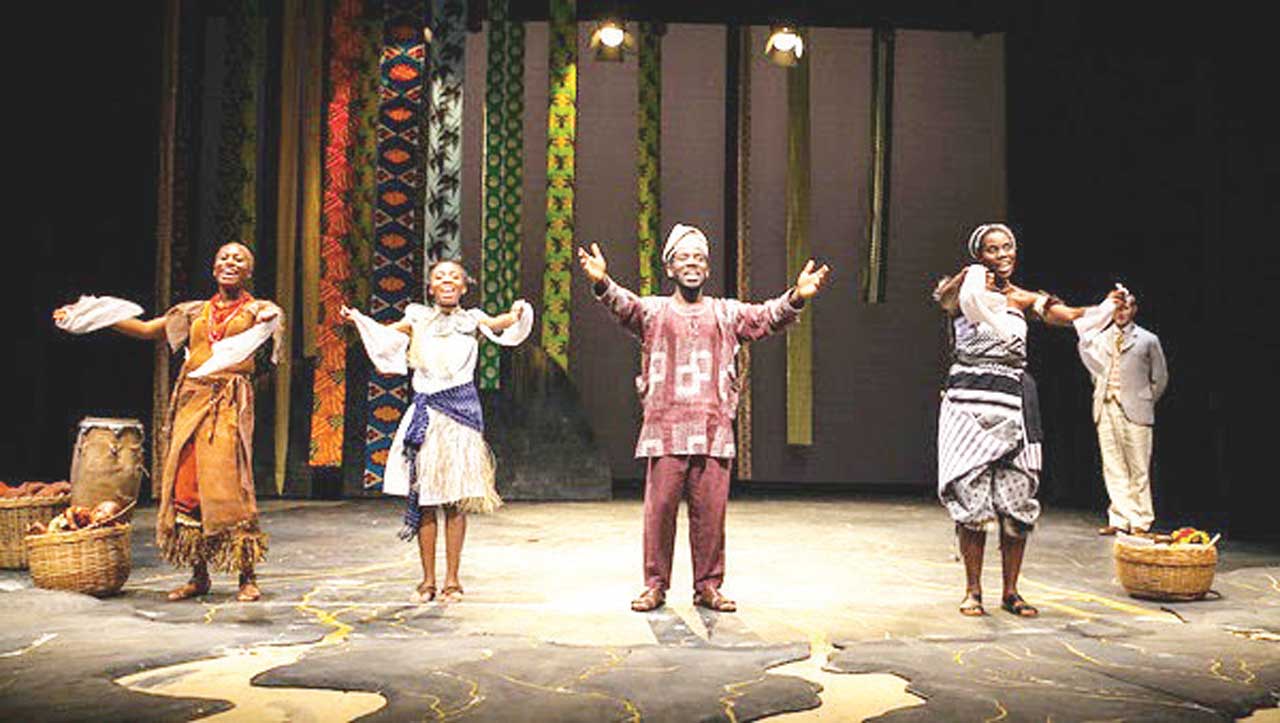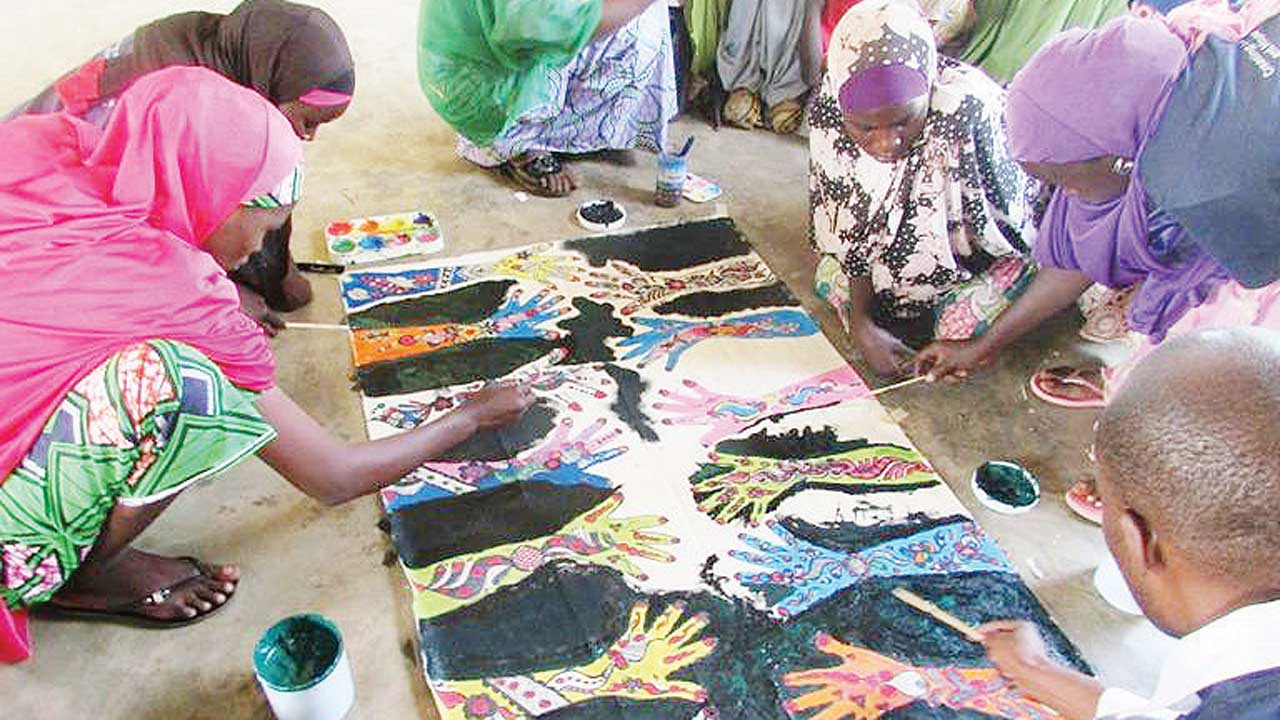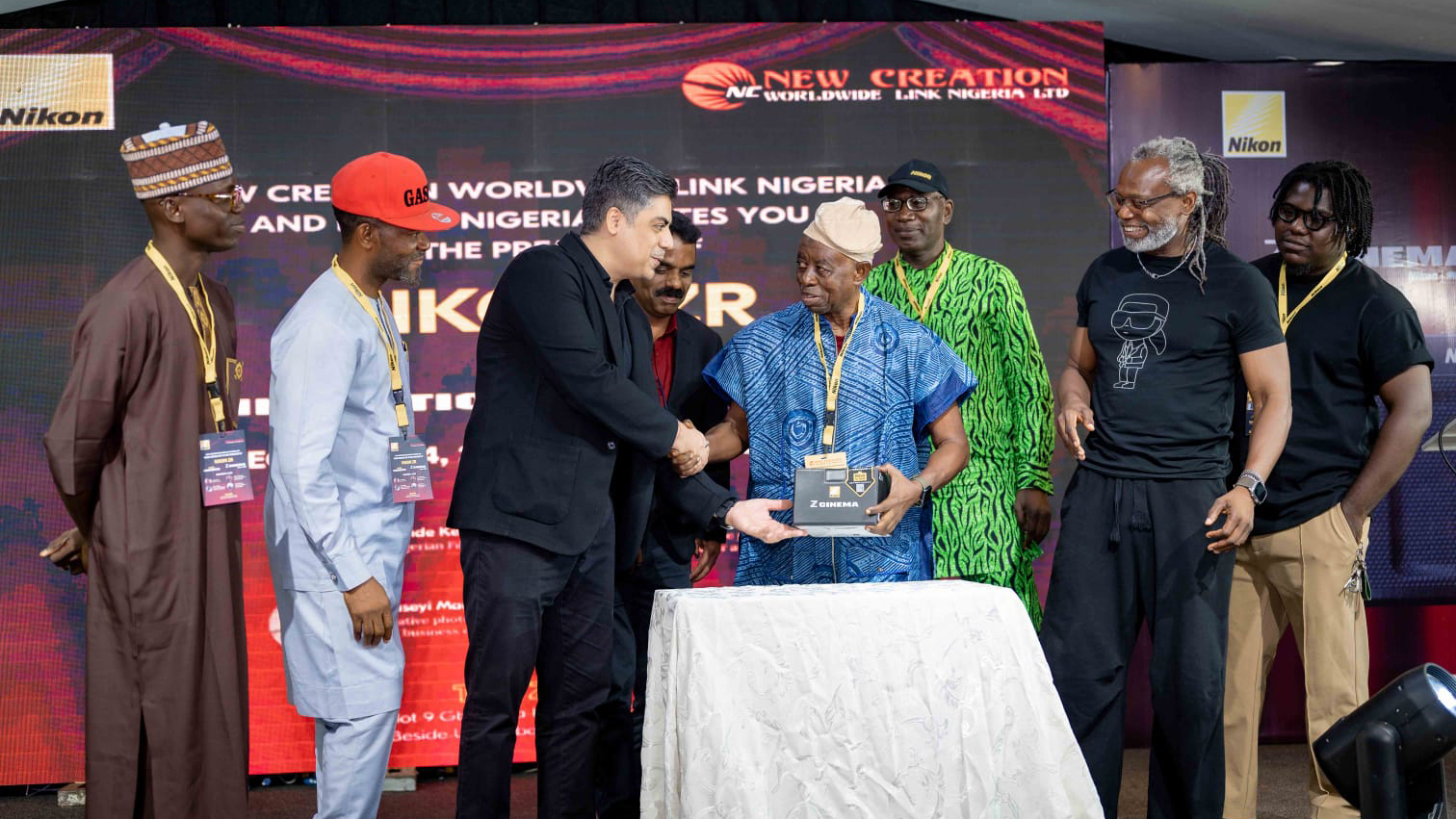
According to them, the Bill seeks to enhance the industry through a well-designed action plan centered on funding, incentives, research, skills and training.
The event attracted creatives such as, Mahmood Ali-Balogun, Jahman Anikulapo, Victor Okhai, Israel Eboh, Makinde Adeniran, Anwuli Ojugo, Azafi Omoluabi, Samuel Osaze and a host of culture journalists.
Dr. Eghosa Imasuen and Mr. Obi Asika are members of the Senior Special Assistant to the President (CRA&E), Office of the Chief of Staff, Col Felix Orevoghene Alaita’s (rtd) Creatives Industries Development Bill drafting committee.
The Bill aims to bridge the gap between the Nigerian creative industries and the Government to build a vibrant, profitable, rapidly growing creative sector by transforming the creative space through a legal, regulatory, and institutional framework, with an executable action plan.
The gathering was to brief practitioners on an Executive Bill at its fifth drafting stage with the express aim of refocusing the creative sector for growth. It’s a Bill that promises to make funding available for the creative sector, its promoters said.
The team, therefore, needed inputs from creatives on how to make the Bill richer before the final draft that will be sent to the National Assembly for legislative work before it is signed into law as an Act on or before May 29, 2023.
Alaita, who said he was working with people who are knowledgeable from the private sector in the Bill committee, expressed gratitude for the opportunity to interface with the writers and content providers, promising to get back to stakeholders with the final draft Bill once it is ready. He was optimistic the Bill would be ready in time for Buhari’s assent before he leaves office on May 29, 2023.
“We want to have a platform that will enable the creative industries grow from where they are now to where they ought to be, in a larger scope,” Alaita informed his audience.
“We have put together many items that are supposed to help you improve your business landscape. The Bill is going to establish a Commission, which will be an umbrella agency that will oversee everything that has to do with the creative industries, and interfaces with every other Ministry, Department and Agencies (MDAs) on your behalf. The idea is to create a one-stop centre where everything about the industry can be resolved, to reduce the bottlenecks and bureaucracies that we normally face when we do business in Nigeria.
“The Bill will also establish a fund that is supposed to create a framework for access to funds at the various layers – from the person who decides on writing a book to the established ones like yourselves, etc. The different layers of funding will be available to you to do your business through a process that will be created in the Act. The Bill also establishes a system in place to ensure that you can use your intellectual property (IP) to access funding, which is a challenge we have identified that a lot of people in the creative industries face.”
Alaita further explained the rational for meeting with industry practitioners in drafting the Bill and the five key areas the Bill will address in providing a holistic, child-focused talent hunting curriculum for children in schools, so they grow up with a clear knowledge of their creative talents and how exactly to tap into them as future career or hobbies.
“I created a concept I call ‘The Whole of Government, The Whole of the Nation Approach to Doing Things’,” he explained further. “This ensures that we don’t just sit as government to create things for people to use without getting feedbacks from them on the viability of those ideas or notions. So we’re here today to get feedback from you on what you think should be in the Bill of such nature that will ensure it is fit for the purpose for which it is designed. We need ownership of the Bill. So the more feedback that we can get and input in the Bill, the more ownership you will have of the Bill.
“The Bill is here for you. The Bill puts you FIRST. FIRST as acronym for funding, incentives, research, skills and training. We want the Bill to be strong on training. We understand the need for a pipeline to be established from nursery school to full adulthood where training of various cadres happens to ensure that the industry is at international standard of quality, going forward. We want children in the nursery school to have dreams and desires of becoming writers, publishers or theatre artists and not when they finish growing up, and they’ve learnt everything to be learnt, then they now possibly want to switch. Let it be organic; let it be something that is nurtured from birth to adulthood. The Bill is very strong on training and will find ways to interface with the Ministry of Education, for instance, to ensure that a syllabus for the creative industry is integrated into the school curriculum to grow talents to meet modern-day standards.”
Speaking at the event, National Association of Nigerian Theatre Arts Practitioners (NANTAP) President, Eboh, noted that it was evident that stakeholders have not been carried along in the drafting process of the Bill.
“As good as the Creative Industries Development Bill (CIDB) may be for the sector, you cannot always believe that you know what any sector needs without involving the players who know what their challenges are, what they require to advance. And that has not been factored in in the delivery of this Bill,” he said.
He also pointed out that there were too many components of the industry that had not been captured in the bill. And this, he explained, can lead to lopsided development in the sector.
His words: “There are too many components of this industry that have not been captured in this Bill, and most times that is what leads to lopsided development in the sector, and one of the reasons why the sector has not grown.
“We appreciate the fact that the Bill is coming, but the process is what we have questioned.”
The NANTAP president added, “there are questions on the involvement of the MDAs, the relevant agencies that are already established by law, operating within this field, whose services, to an extent, would be duplicated by this Commission as proposed. Do they have a buy-in into this bill, because without that buy-in there’ll still be conflict in interest? And it’s one the problems that the sector has faced.”

Also speaking at the event, Anikulapo observed that stakeholders had not been carried along in the drafting process of the Bill.
He advised that the Nigerian cultural policies and endowment fund for the arts should be captured in the bill and put in proper perspective.
For the National President, Directors Guild of Nigeria (DGN), Victor Okhai, idea of the bill is good but if the stakeholders are carried along, if there is no inclusiveness, the bill will not see the light of the day. He was particularly worried that, like some of his colleagues had pointed out, he was not even invited also.
“The idea of the bill is good and well appreciated, whatever that will take us to the next level is welcome. But if there is no inclusiveness, the bill will not see the light of the day. So I advise that you do things the right way to get the full support of the industry,” Okhai said.
The engagement series, led by the CIDB team, began on March 4, 2023, with a session at the Omenka Gallery in Lagos, hosted by Oliver Enwonwu. Prominent stakeholders in the visual arts sector attended the event.
London first hosted the parley with Alaita, promoter of the Nigeria Creative Industries Development Bill and Senior Special Assistant to the President (CRA&E) on Tuesday, February 21, 2023.
The lawyer, historian, musician and Fellow of the Royal Society, Ed Keazor, moderated the Evening of Arts.
It provided an opportunity for Alaita to share with his audience reasons for the proposed Creative Industries Development Bill (NCIDB). He described the bill as a “Whole of Government/Whole of Nation approach to championing an Executive Bill slated to serve as part of Mr. President’s legacy to provide an enabling environment for our creative and enterprising youths.”
The bill according to the promoters “aims to bridge the gap between the Nigerian creative industries and the government to build a vibrant, profitable, rapidly growing creative sector.” Continuing they note that it will achieve this “by transforming the creative space through a legal, regulatory, and institutional framework, with an executable action plan.”
The team also met with media and culture entrepreneurs, that included the founder of the Silverbird Group, Ben Murray-Bruce; the CEO of EbonyLife Media, Mo Abudu; CEO of Terra Kulture, Bolanle Austen-Peters; founder and CEO of the Africa International Film Festival, Chioma Ude; the COO of Mavin Records, Tega Oghenejobo; as well as comedians, Bovi and Nedu, among others.
Subsequently, the CEO of the Nigeria Economic Summit Group, Laoye Jayieola, hosted the CIDB team led by Alaita, Chinenye Uzoukwu and Obi Asika, at the NESG headquarters on March 7, 2023.
The meeting included the National Assembly Business Environment Roundtable team and thematic leads from relevant NESG sectors.






